The world's strongest increase
The Vietnamese stock market experienced a strong increase on November 8. The VN-Index jumped 33.14 points (+3.07%) to 1,113.4 points, with a series of pillar stocks and the securities and real estate groups... surging. This was the strongest increase globally.
The strong recovery of the VN-Index helps reduce doubts about the weak economic health in the face of great pressure from the world in recent times, from exchange rates to geopolitical instability...
Besides, the recovery of many major stock markets in the world also helps domestic investors have more confidence in the Vietnamese stock market.
Last night, November 8 (Vietnam time), the US stock indexes S&P 500 and Nasdaq continued to extend their streak of gains. The broad-based S&P 500 index rose for the eighth consecutive session.
European stocks also continued to recover. There was a slight correction in the Asian market. But overall, global stocks are performing positively following the slowdown of the US dollar and the decline in crude oil prices and government bond yields.
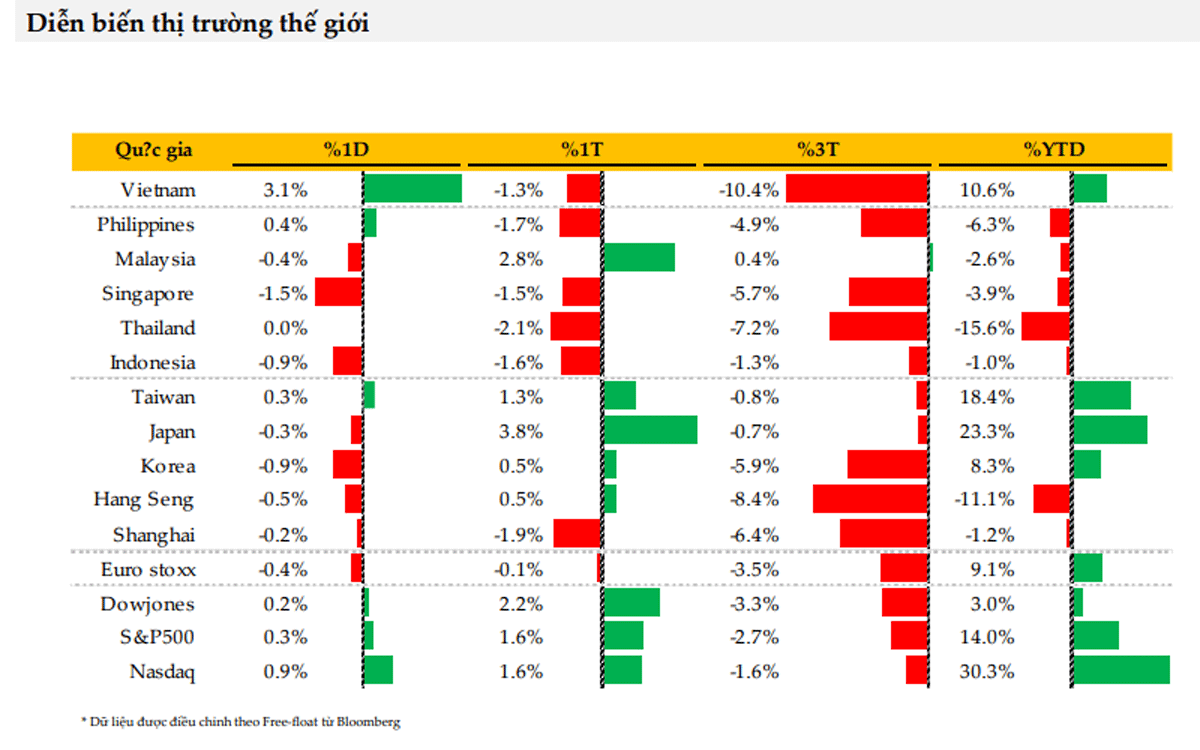
Around the world, investors are preparing for the possibility that the US Federal Reserve (Fed) will continue to be cautious and not tighten monetary policy, thereby expecting the US economy to have a "soft landing".
Previously, US stocks were assessed as oversold over the past few months.
On the night of November 8, world crude oil prices fell sharply, dropping nearly 3% to a 3-month low. WTI oil prices fell to $75/barrel. Meanwhile, Brent oil fell below $80/barrel. Oil fell due to concerns about weakening demand in the US and China. US crude oil reserves increased sharply. Meanwhile, retail sales in the Eurozone fell.
The USD on the US market increased at the beginning of the session on the night of November 8 (Vietnam time) but quickly fell afterwards. The DXY index - measuring the fluctuations of the USD compared to a basket of 6 major currencies - fluctuated between 105-106 points. This is a positive factor for the exchange rates of the countries. Previously, investors were worried that the DXY index could reach 110 points. The pressure on the exchange rate decreased, causing stocks in many countries to increase again.
In addition, yields on Asian government bonds also fell sharply, thereby reducing pressure on exchange rates. The yield on 10-year Vietnamese government bonds fell from 3.2%/year near the end of October to below 2.8%/year.
The USD/VND exchange rate has decreased quite rapidly. The selling price of USD at Vietcombank decreased from 24,750 VND/USD in early November to 24,540 VND/USD on the morning of November 9. Since the beginning of the year, the VND has depreciated by about 3%, close to the State Bank's target.
In the interbank market, liquidity is quite abundant. Overnight interest rates have fallen below 1%/year since the beginning of the month. The issuance of treasury bills to withdraw money from the State Bank is also low, only about 5,000 billion VND/session with interest rates at 1%/year, instead of 1.5%/year as in late October and early November. The 28-day treasury bills issued in October were at 10,000-20,000 billion VND/session, equivalent to a fairly large amount of money returned to the market.
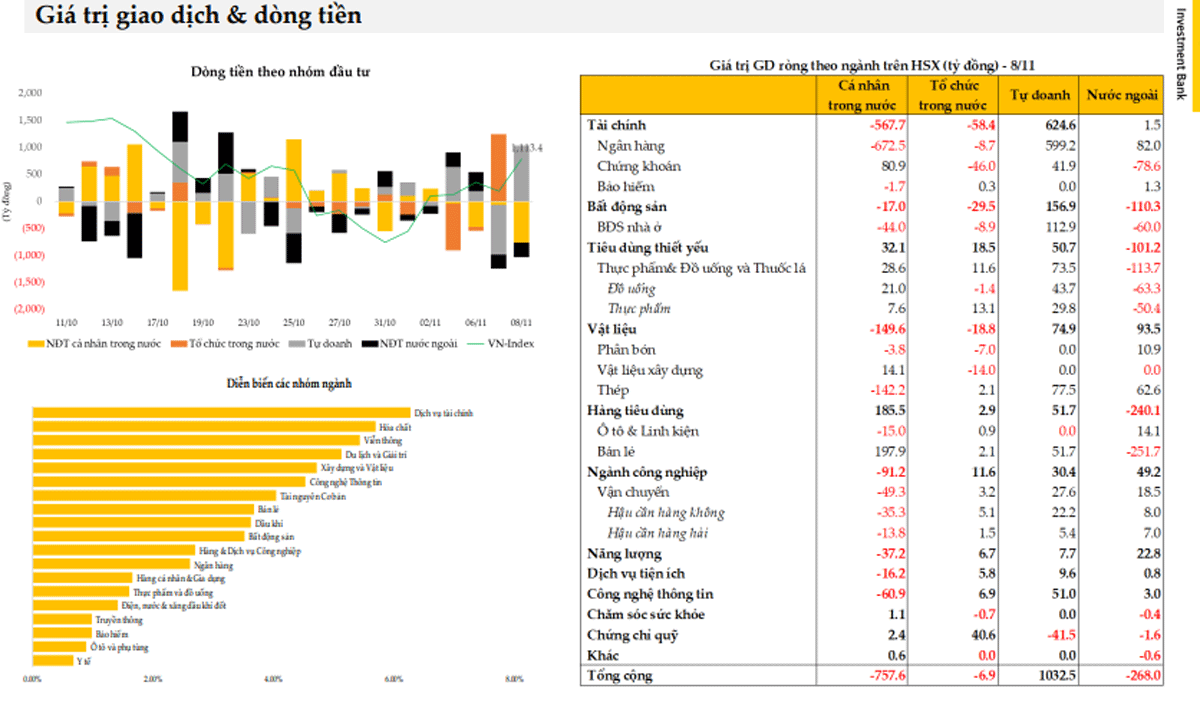
Stock outlook brighter
It can be seen that the increase of more than 33 points with a surge in matched liquidity on November 8 helped the VN-Index surpass the important psychological support level of 1,100 points. This helped improve the spirit of investors.
However, this is not too impressive. Since the beginning of the year, the VN-Index has fallen below and exceeded this threshold many times.
What many people are interested in is whether the recovery trend will continue or not and whether liquidity in the stock market will increase further, or at least maintain the level of 21,000-22,000 billion VND like the breakout session on November 8 or not?
In fact, Vietnamese stock valuations have become more attractive after a sharp correction that has lasted for several weeks. In the long term, many securities companies and experts believe that the current estimated price-to-earnings (PE) forward ratio of 10-11x is attractive for long-term investment.
Maybank Securities believes that the VN-Index had a significant increase, marking an important change in market sentiment. The price line with a strong increase has successfully returned above the 20-session moving average (MA-20) and at the same time surpassed the influence of the downtrend line that has lasted since mid-September.
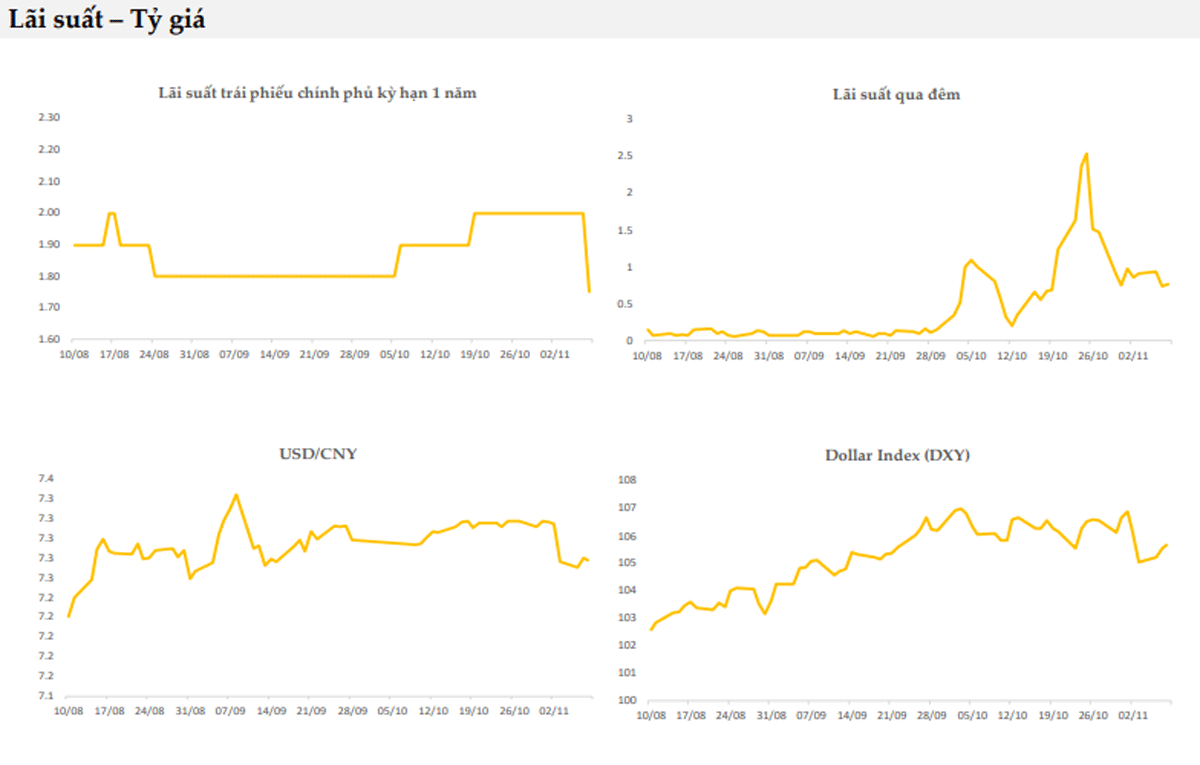
With that result, the VN-Index has surpassed the nearest resistance at 1,105 points. This is also the first time the index has successfully created a higher peak, clearly on the price chart since mid-September. These changes, according to Maybank, are important and help once again create clearer confirmation of the possibility of successfully forming a bottom at the 1,030 point area and the trend is no longer down.
According to Maybank, the next resistance level of the price line is at 1,126 points and further at 1,158 points. The nearest support is adjusted to 1,075 points and further at 1,030 points.
Investors can increase the proportion of stocks held with significant changes after the session on November 8, and should take advantage of short-term fluctuations to establish new buying positions.
However, Maybank also believes that it is not impossible that there will be fluctuations to absorb short-term profit-taking needs, and it is also necessary to note that derivatives expiration next week may create certain caution.
Liquidity on the morning of November 9 on the stock market continued to be high, although not really impressive, reaching over VND5,000 billion (on HOSE) by 10am. By 2pm, liquidity on HOSE reached VND16,000 billion. Caution still remains. VN-Index sometimes increased, sometimes decreased but not strongly.
With recent positive developments, a long-term upward trend has been thought of by many.
According to ACBS Securities, in the short term, there are no risks from the domestic economy. Exchange rates and liquidity are reaching a new equilibrium, while growth in the fourth quarter is expected to be better than the second quarter. Pressure from the international market has also decreased. The Fed did not raise interest rates for the second consecutive time and has a neutral stance. The USD cooled down, while international trade showed signs of bottoming out.
According to ACBS, market valuations are attractive after the adjustment. Net selling pressure from foreign investors has decreased significantly if excluding the impact of the stock groups VHM, VIC, VRE, MWG.
Currently, many experts recommend that investors monitor groups of stocks with growth momentum in 2024. These are stocks related to key planning such as upstream oil and gas, power planning VIII; laws related to the real estate market and groups benefiting from FDI capital flows...
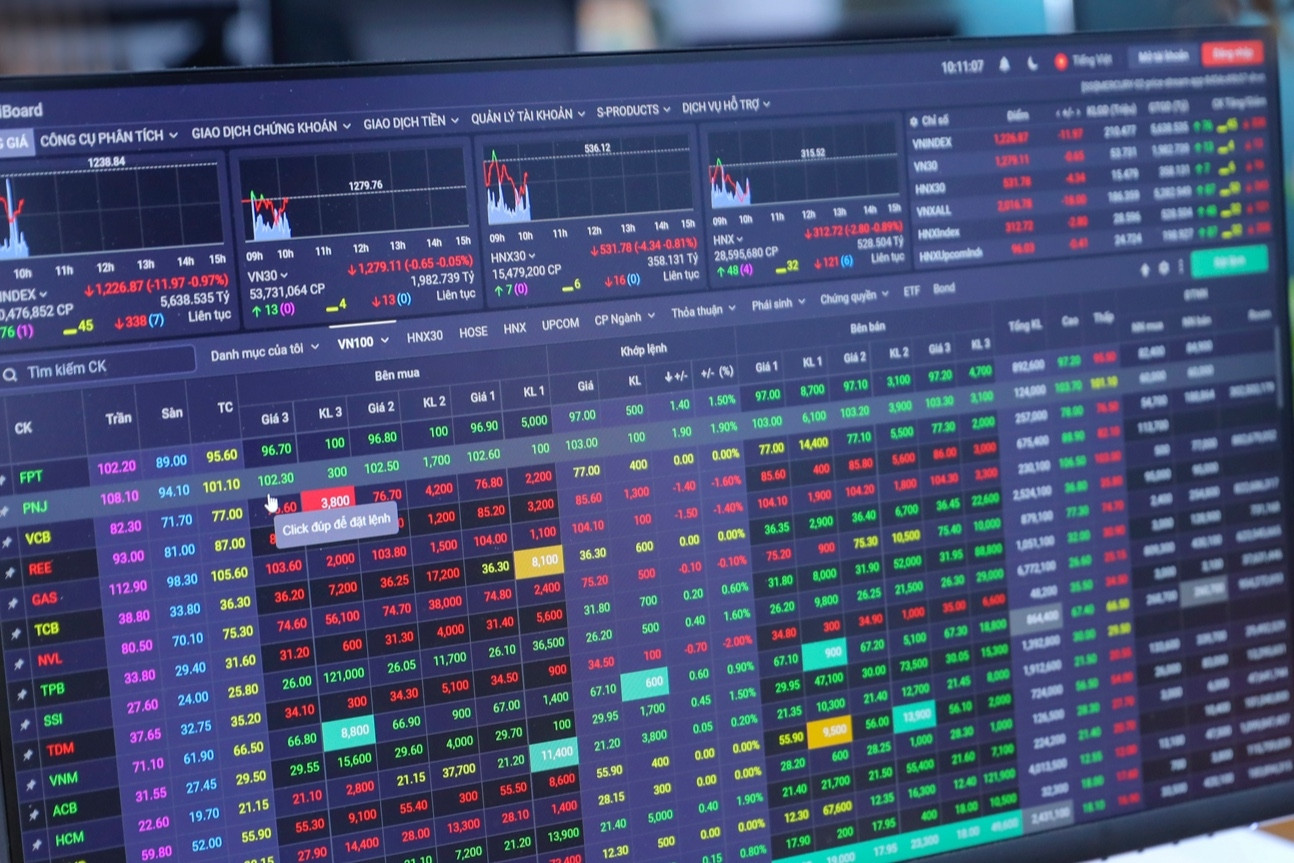
Source


![[Photo] French President Emmanuel Macron and his wife begin state visit to Vietnam](https://vphoto.vietnam.vn/thumb/1200x675/vietnam/resource/IMAGE/2025/5/25/03b59c7613144a35ba0f241ded642a59)

![[Photo] Pink ball and table tennis](https://vphoto.vietnam.vn/thumb/1200x675/vietnam/resource/IMAGE/2025/5/26/d9f770bdfda243eca9806ea3d42ab69b)










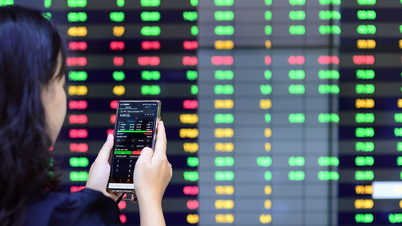










![[Photo] Ea Yieng commune settlement project abandoned](https://vphoto.vietnam.vn/thumb/1200x675/vietnam/resource/IMAGE/2025/5/25/57a8177361c24ee9885b5de1b9990b0e)
![[PHOTO] Hanoi fences off demolition of "Shark Jaws" building](https://vphoto.vietnam.vn/thumb/1200x675/vietnam/resource/IMAGE/2025/5/25/1b42fe53b9574eb88f9eafd9642b5b45)






























![[Infographic] Vietnam-France Comprehensive Strategic Partnership](https://vphoto.vietnam.vn/thumb/402x226/vietnam/resource/IMAGE/2025/5/26/986f63068ea9413dbbb558ee6c6944f3)

































Comment (0)